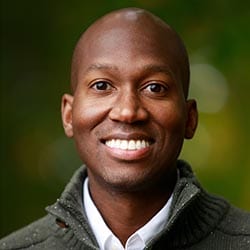A Deep Look at Diversity in the Coaching Industry
What made me stand out was my Black skin. This was the defining variable, and I was reminded of it regularly.
I’ve always appreciated diversity in all its various forms, both tangible and intangible. My love and appreciation for what is different can be attributed to my birth city. I was born in Toronto, Canada, a vibrant and multicultural city. I was raised around a fusion of food, language, culture and philosophy. When I was 12, my family and I moved to the United States. What I found was a shift; rather than an appreciation for differences by those around me, being different made me odd.
Unfortunately, this would not be the last time I noticed that I stand out. Not necessarily because others called attention to my Black skin, but because I see that there are not many who look like me. I stand out in the coaching industry. Also problematic is that not much attention has been given to this issue by way of research.
Yet, representation matters to professional coaches, coaches in training and prospective clients. An individual’s ability to see themselves represented in the coaching industry sets the stage for inclusivity and one’s ability to dream. Representation also matters when examining an essential skill in coaching: empathy. Empathetic listening goes beyond listening for the coach’s sake. Rather, it’s about getting out of one’s own way and deep listening to understand the viewpoint of the client. However, research demonstrates that many coaches struggle with this essential skill as a racial empathy gap is present, whether or not the coach is aware.
The year 2020 has brought the globe to a halt with the COVID-19 pandemic, but it also has shed light on another life-threatening matter: racism. The coaching industry needs coaches who proactively choose to work against racism, including the idea of “not racist.” In his book “How to Be an Antiracist,” Ibram Kendi writes, “It is a claim that signifies neutrality: ‘I am not a racist, but neither am I aggressively against racism.’ But there is no neutrality in the racism struggle. The opposite of ‘racist’ isn’t ‘not racist.’ It is ‘antiracist.””
The updated ICF Core Competencies highlight the importance for coaches to “engage in ongoing learning and development.” Here are two things you can do immediately to embody a coaching mindset.
1. Educate Yourself.
It is not the role of those who are different from you to educate you on those differences. Accountability must start with you. Admittedly, the resources within the coaching space are limited. Organizations like Coach Training EDU, whose ethos is coaching for a cause, are working to develop coach training that combines diversity and inclusion with coaching principles.
Outside of coaching, the resources are abundant, including books, free online courses and alliances designed to facilitate and engage safe and productive conversation. Here are a few book recommendations on anti-racism and allyship:
- “How to Be an Antiracist” by Ibram Kendi
- “Me and White Supremacy” by Layla Saad
- “So You Want to Talk About Race” by Ijeoma Oluo
Lean into the discomfort of embracing the ugly history of racism. The skillset of self-awareness, intuition and the examination of personal biases are assets to the trained coach.
2. Take Meaningful Action.
While globally the coaching industry embraces the work of diversity and inclusion, it needs to actively move past symbolic acts of social justice that enable coaches to feel good and then disengage. Once an individual has come to a place of understanding, they must act on it.
To engage in social justice work, one must access the advantages that life has granted them while being aware of those who do not possess the same benefits. Simply put, that means leveraging individual privilege to make real change on a systemic level. But avoid the savior’s complex that tempts you into rushing into black and brown communities to start coaching. First determine what the needs are. One form of meaningful action could look like an ICF chapter partnering with local organizations that have long been doing anti-racism activism work.
Professional coaching calls practitioners into intentionality while upholding professional standards and guidelines. My hope is for that same level of intentionality when it comes to diversity and inclusion. It is not enough to declare, “I’m not a racist.” It’s time to start making real change.



Thanks for this piece Andrew. Certainly food for thought. Your point around savior’s complex is well made. I believe growing our awareness through educating ourselves and purposeful, conscious action are key to delivering change.
Thanks for your thoughts and article, Andrew–and for the ways in which you are heightening awareness around coaching and race. I also would add to the list of resources: Trudi Lebron (www.trudilebron.com). She does a lot of work around coaching for equity. She also hosts a podcast that I find valuable, particularly as I continue to educate myself and my students about the issues of race in the coaching world.
Hi Andrew,
Thank you so much for this post. I am facing some issues with my local chapter regarding inclusion in a way that is meaningful and not just in paper or wishes.
I would love to connect to discuss the lack of diversity in ICF.
Hi Andrew,
Thank you for writing this piece, When talking about “leaning into the discomfort of racism”, I was reminded of REI “Racial Equity Institute” based out of Greensboro, NC. They are doing great workshops around the country to raise awareness of what racism is, where it came from and the whole history. I attended the workshop a couple years ago. Very powerful and done in a safe space to open up and start the conversation. Check them out!
I didn’t know there were so many books dedicated to this topic. I need to get more involved in diversity topics. I’ll have to look to education centers to learn more.